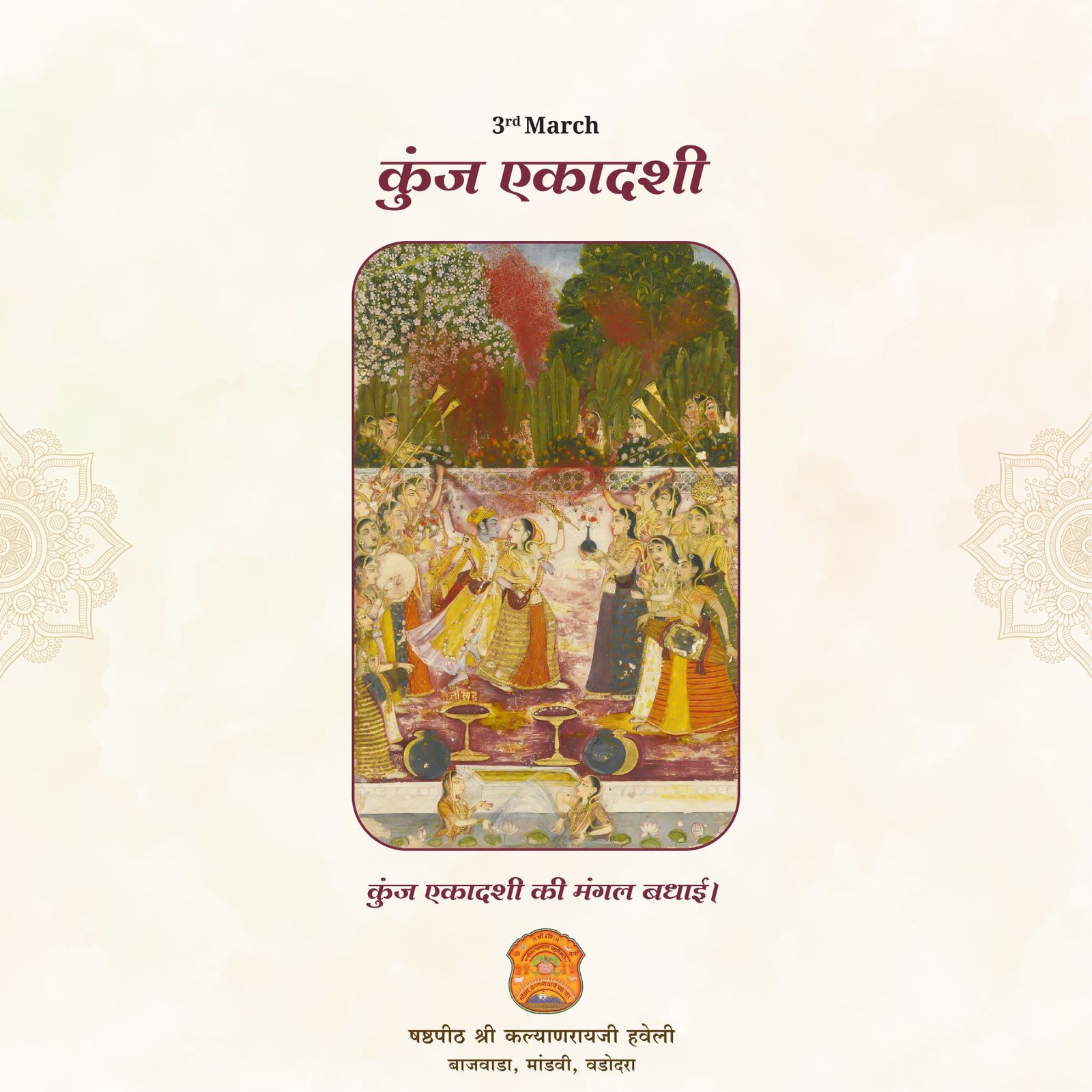Balancing The Inner You
Goswami 108 Shree Sharnamkumarji Mahodayshree.
There are both difficult and good times which come in our life in different phases.
Our dharma (rules for right living) teaches us how to keep balance of our inner-self during these critical times. By saying "inner-self" I mean "inner" - our senses, soul and intention ; "self "- identity and behaviour.
In the Manusmruti, in chapter 6, verse 97 emphasizes the 10 characteristics of dharma which one should follow to maintain balance and self control in all situations that we face in our life.
As per Hinduism, dharma and adharma is not only related to action. Of course, there will be action but it is the intention behind the action which is more important than the action itself.
Dharma in Hinduism cannot be understood based on making judgements of good and bad, right and wrong. It studies only the intention behind the action in a magnified manner. Without understanding the reasoning behind the action, the action remains incomplete.
धित: मा दमोऽय शौचिमयिनह:। धीिवा समोधो दशक धमलणम।।
The ten characteristics of dharma are: Patience, forgiveness, mastery over the mind, not stealing, purification, mastery over the senses, internalising or introspection, knowledge, truth and no anger.
Dhriti - patience (dhairya), being the first attribute of dharma holds a meaning, it is not accidentally placed at first but for a reason. The reason being, when we are trying to practice dharma in our daily lives we face a lot of up and downs and difficulties and in those situations patience is what we run out of. And so, In Pushtimarg, Shri Mahaprabhuji teaches us that how patience is important to attain the full result of our actions.
Kshama - forgiveness, not only in context of other people but also to forgive ourselves. The more we develop the ability the more we will be able to forgive others. This attribute will make our ego disappear and make us a kind human being.
Dum - menas to be persistent in spiritual practice with patience, forgiveness and all good intentions. Our minds often play tricks on us when we are faced with difficult situations, when clarity of thought is crucial to overcome the difficulty. It is also known as having mastery over the mind.
Asteyam - Do not steal, this important feature teaches us that stealing of things, whether they are ideas or anything else with which someone is attached cannot be done. This is a quality where you want to be original and authentic.
Saucham - Purity (pavitrata) ,there are two types of purity : (1) Internal purity आतरक शता , (2) Outer purity बािहया पिवता
दानन पिणर न त ककणन, ानन शर न त चदनन मानन तर न त भोजनन, ानन मन त मडनन ।।
This attribute teaches that physical cleanliness is important because the more and more toxins we accumulate in our body, it becomes more difficult to get tuned with the cosmic energy which is why physical cleansing is important and needed. Internal purity and cleaning is an absolute necessity to get rid of the negative emotions in life as well as negative feelings toward others and oneself.
Indriya nigrah - mastery over senses (इया िनह ) to get victory over senses , This is the one characteristic that people easily forget. We get carried away with what we see or hear, that we forget what was the real intention and purpose behind what we are doing. In this moment we lose being in dharma. Therefore it is important to have mastery over senses so you don't let the sense perception influence our integrity of dharma.
Dhi - intelligence (ब) , intelligence is the ability to apply knowledge . This attribute tells to use intelligence in right way. Introspection is when you sit with your self, no matter what is happening around you, you focus on your self , and bring awareness to your self.
Vidhya - take true knowledge (यताथ ान लना) , true knowledge is collection of skills and information acquired through experience .
Satyam - Truth, there are 2 things to keep in mind :- (1) the cosmic truth which means you are divine and the divine is within (2) practicing truth which means to speak or to act with truth .
Aakrodh - no anger (ोध ाग), not experiencing anger, no delusion or bewilderment of memory . When memory is bewildered, intelligence is lost, and when intelligence is lost one focuses again nto the material world.
These 10 attributes of Dharma are the guidelines for becoming a person of integrity, values and character.
Share this Post:


















Comments